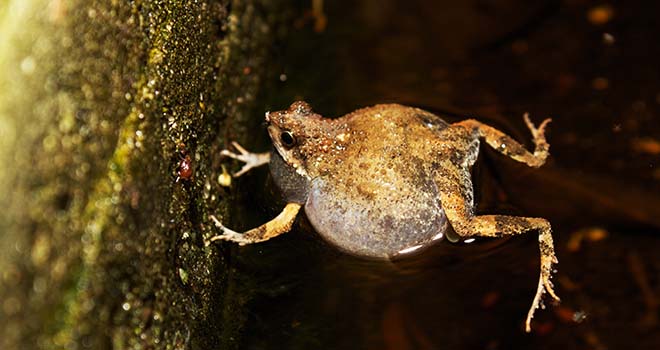-
Tips for becoming a good boxer - November 6, 2020
-
7 expert tips for making your hens night a memorable one - November 6, 2020
-
5 reasons to host your Christmas party on a cruise boat - November 6, 2020
-
What to do when you’re charged with a crime - November 6, 2020
-
Should you get one or multiple dogs? Here’s all you need to know - November 3, 2020
-
A Guide: How to Build Your Very Own Magic Mirror - February 14, 2019
-
Our Top Inspirational Baseball Stars - November 24, 2018
-
Five Tech Tools That Will Help You Turn Your Blog into a Business - November 24, 2018
-
How to Indulge on Vacation without Expanding Your Waist - November 9, 2018
-
5 Strategies for Businesses to Appeal to Today’s Increasingly Mobile-Crazed Customers - November 9, 2018
Female Tungara Frogs May be ‘Irrational’ When Choosing Their Mate
Amanda Lea, a biologist in the laboratory of Mike Ryan at the University of Texas, Austin, says past studies have given scientists a pretty good idea of what the females find appealing.
Advertisement
In the attempt to choose a mate, it’s no surprise that females will select the more “attractive” of two males, but now a new study reveals that female túngara frogs are susceptible to the “decoy” effect, where the introduction of a third, inferior mate results in the female choosing the less attractive of the first two options. They’re only 2 cm long, but they can be very loud – the males use these loud calls to lure mates. There are innumerable suitors that female frogs face.
The researchers initially presented the frogs with two options and the amphibians often prefer the one with the most quickly repeated call but when the researchers presented a third option, which was as attractive as the call they have rejected earlier but much slower, the frogs’ preference changed.
According to accepted theory on animals’ mating behaviour, females will choose the extra “engaging” of the males. Females approach male callers and show preferences for males based on call properties.
Lea said the female’s choice switch is “irrational”.
Watching a fringe-lipped bat swooping down to eat a tungara frog will give you a new appreciation for bats as predators.
However, the finding does not necessarily indicate that the frogs had made a wrong decision.
We tested female frogs with three simulated males who differed in relative call attractiveness and call rate.
Both of these calls, however, were more attractive than the decoy call, which was low of tone but slow.
The female frogs consistently picked speed.
Male túngara frog calling within a chorus in Gamboa, Panama.
“They have two traits to evaluate”, Lea explains. The placement of the speakers projecting the calls didn’t appear to influence the frogs’ flip-flopping preferences. The only explanation they have found was that less attractive individuals have the ability to make other exemplars seem more attractive. Hunter notes that the frogs are probably not assessing the quality of each call so much as responding to sensory stimulation. “The interesting and surprising thing is you actually get this reversal of preference”.
Scientists that study human behavior have found that there is an odd thing that happens when people go to buy something, a used auto for example.
They then recognized three totally different name variants, and measured feminine choice for every one (equal to picking a mate).
Advertisement
Lea says she really wants to understand what is going on with these frogs – are they really making an epic mistake?




























